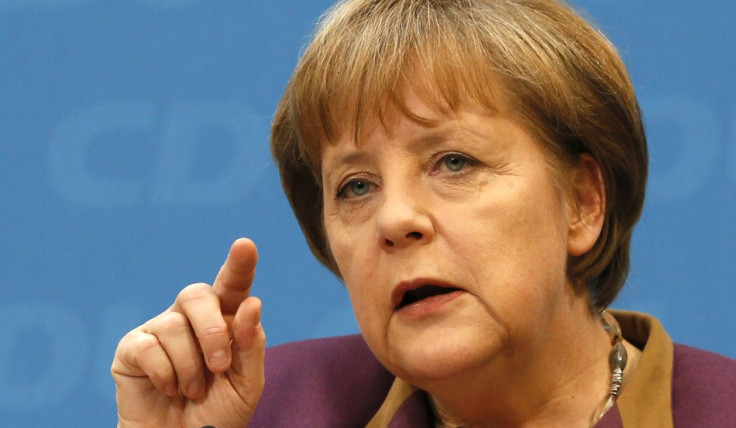German Elections 2013: Merkel Wins A Historic Third Term [VIDEO]

Chancellor Angela Merkel has won a third term that will cement her reputation as the most important German politician of her generation.
The electorate gave a resounding endorsement to her Conservative Democratic Union party (CDU) which won 41.5% of the vote.
Merkel called this historic victory "a super result" as her main rivals, the left-wing Social Democrats (SDP), won just 26% of the vote.
However, Merkel's victory just fell short of an absolute majority of 42% and she will have to build a new coalition government with suitable partners, probably the SDP.
Potential Partners
The centre-right coalition that Merkel established in her second term will not be possible as her junior partners, the Free Democratic Party (FDP), won only 4.8% of the vote.
This means the FDP is just short of the 5% threshold needed to win seats in parliament and has left them with no national representation for the first time in post-war German history.
Other parties that did better were the Green Party, which won 8.4%, the Left Party which claimed 8.7% and even the newly created Alternative fuer Deutschland (AfD), which won 4.7%.
Options for Merkel
It is believed Merkel is considering an alliance with either the SPD, which would be a Grand Coalition similar to the one she led from 2005 to 2009, or with the Greens.
If she leads a Grand Coalition, the SDP could extract some significant concessions from Merkel on a variety of issues.
These could be higher income taxes, a nation-wide minimum wage, stricter financial regulation and stronger welfare policies.
But she might also form an alliance with the Green Party and give them an influential role in leading Germany's energy policy.
Market Reactions
German Bunds rose on the back of Merkel's victory on the open on Monday.
Investors will expect little change in Germany's approach to managing the eurozone crisis, as Merkel's overwhelming win shows many voters are happy with her leadership.
She has been chancellor since 2005 and is the only significant leader who has managed to stay in power since the European sovereign debt crisis erupted in 2010.
© Copyright IBTimes 2024. All rights reserved.






